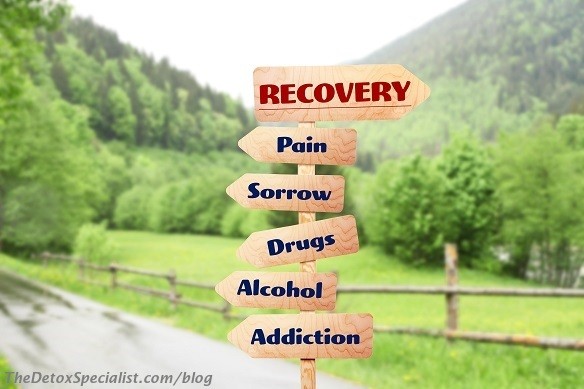
Recovery represents a process that is greater than the sum of its individual steps. With that being said, you have to start somewhere, and the first and arguably most significant step is detox. While detox is the first step to achieving a life free from addiction, the thought of beginning the detox process often causes a certain level of anxiety and apprehensiveness.
No matter what someone is addicted to, people will almost always experience some degree of physical and psychological withdrawal symptoms. Depending on the substance someone is addicted to, medical detox may be required. Without the help of medical detoxification, people who are in early recovery are ill-equipped to handle the pain and discomfort of withdrawal. As a result, they return to active drug use to alleviate the symptoms.
Often, people are unsure or even scared of the detox process because of a lack of information or misinformation. This article will help clear up any misconceptions surrounding detoxification, and you will see the benefits of this crucial step involved in ending addiction. If you have any further questions about medical detoxification for substance abuse, contact a local addiction professional or treatment center.
Detoxification Defined
Detoxification is a set of interventions that help newly recovering addicts better tolerate withdrawal symptoms experienced when they quit using substances. The detox process allows the clearing from the body the toxins that have accumulated during the user’s period of substance abuse. Current detox programs and philosophies can be traced back to the 1970s when perceptions regarding treatment and addiction changed.
Before the 1970s, drug and alcohol abuse and intoxication were viewed as a criminal offense. As a result, people were often arrested and were held in so-called “drunk tanks” (which were the local jails). Those confined in these areas went through withdrawals with little or no help. As the disease model in addiction became more researched and accepted, perceptions shifted from addiction as a criminal offense to a condition that needs compassionate and expert treatment.
Related reading: The Many Consequences of Alcohol Addiction
The Dangers of “Cold Turkey”
Because of the uncertainty and fear that can surround the detox process, some people may find quitting “cold turkey” or utilizing self-detox methods more appealing. People may try these to “cure” themselves or use them because they have heard others who were able to kick their habits in this manner. While there are many reasons why someone would want to try and kick their addiction alone, it should be considered with caution as there are a number of potentially dangerous and life-threatening consequences to detoxing from drugs and alcohol on your own.
At best, these self-created detox methods work in the short term. Once an individual begins to detox from addictive substance experiences, withdrawal symptoms may produce pain and discomfort that becomes difficult to stand. As a result, they often turn back to substance use. If a person is addicted to multiple substances and has underlying medical issues, the withdrawal symptoms they experience can be life-threatening and even fatal. That is why medical detoxification is so crucial in the recovery process. Under constant supervision, patients are better able to navigate withdrawals in a safe, supportive, and comfortable environment.
The Three Steps of Medical Detoxification
When people enter detoxification, they will undergo a three-step process. These steps will not only help them detox safely, but it will also provide a solid foundation for further intensive treatment. These steps are as follows:
Evaluation
The first step in the detox process is evaluation. During the evaluation process, experienced treatment staff will perform a comprehensive assessment and testing to gauge the severity of one’s addiction. These evaluations include the testing of both mental health and physical health condition, which will help guide detox treatment and bring to light any possible complications that may negatively impact the detox process.
Stabilization
The second step in the detox process is stabilization. The stabilization process includes both the medical and psychological processes of assisting the client through withdrawal and to a state where the addict is not only substance-free but is also in a physically and psychologically stable state. Treatment staff will primarily utilize medication-assisted therapy to help the patient better tolerate withdrawal symptoms. Treatment staff may also use other interventions such as nutrition therapy or recreational therapy. Additionally, the stabilization phase also involves treatment professionals assisting patients in becoming familiar with the treatment process and what their role is in that process.
Entry into Treatment
The third and final phase of detox is the patient’s entry into treatment. During this final phase, treatment staff will prepare the patient to enter intensive drug treatment. Staff will be upfront with the addict regarding the importance of being motivated and following through with all phases of substance abuse treatment and care—including aftercare. For those who may have completed a medical detox program in the past but were unsuccessful in completing treatment, a written treatment contract may be written up where the patient agrees to participate in a care plan.
As far as a time frame in concerned, the medical detoxification process can last between 5-14 days. This time frame is dependent on the severity of withdrawals as well as any underlying complications. Those in detox need to be patient. It takes time for substances to be detoxed and removed from the body, and it may take some time for the brain chemistry to normalize and for a patient to feel back to normal.
If you or a loved one are ready to quit drugs once and for all, detoxification is the first step that must be taken. While you may be apprehensive about the process, undergoing detox from addictive substances can be done both safely and comfortably with the help of professionals. If you or a loved one needs to detox from addictive substances, contact a local detox professional area and get more information and how to start recovering from addiction.
 Author bio: Robert Tropp is a functional nutrition practitioner whose primary focus is substance abuse and mental health disorders. Robert uses a functional medicine approach to help clients regain mental and physical well-being. Robert is an advocate for the importance of nutrition in addiction recovery and works as the health and wellness director at Nuview Treatment Center in Marina Del Rey, CA.
Author bio: Robert Tropp is a functional nutrition practitioner whose primary focus is substance abuse and mental health disorders. Robert uses a functional medicine approach to help clients regain mental and physical well-being. Robert is an advocate for the importance of nutrition in addiction recovery and works as the health and wellness director at Nuview Treatment Center in Marina Del Rey, CA.



